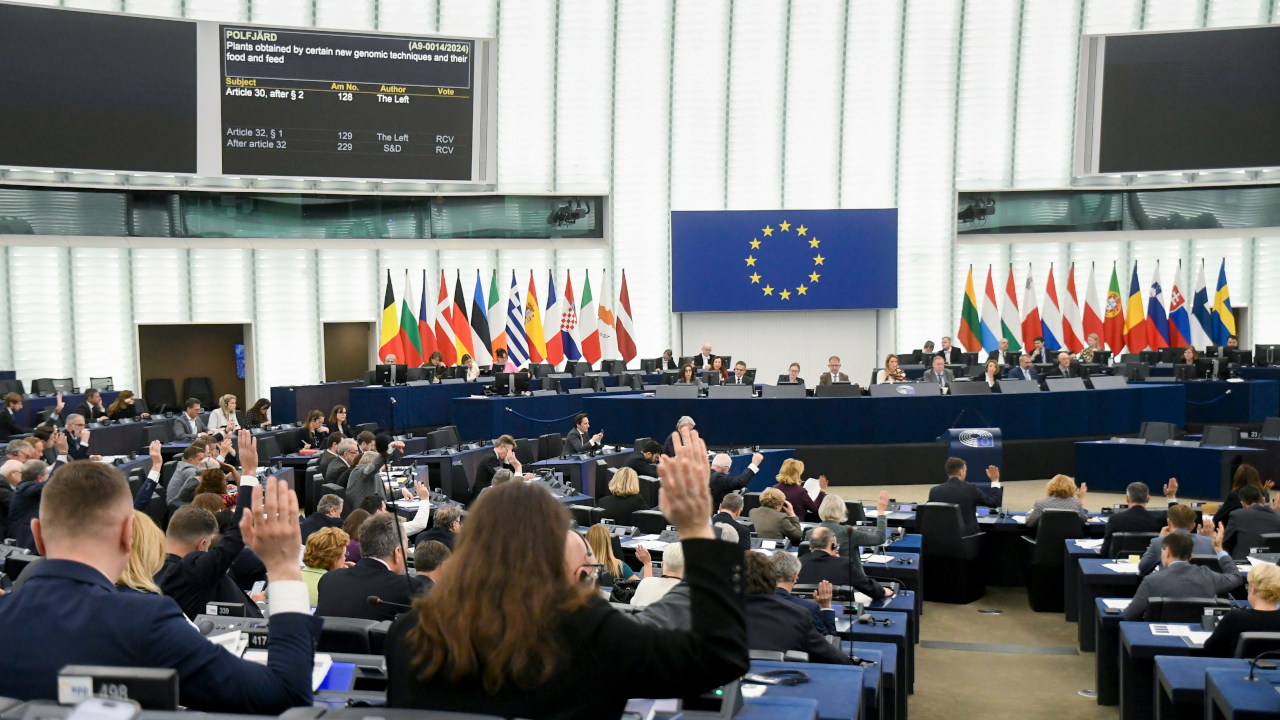EU Parliament votes in favour of relaxing rules on genetic modification
The EU Commission's amended proposal to relax genetic engineering legislation for certain genome-edited plants was adopted by the European Parliament by a narrow majority.

Last summer, the EU Commission proposed exempting certain genome-edited plants from the scope of EU genetic engineering legislation and thus facilitating their market access. The planned relaxation only affects plants that have been developed using new genomic technologies (NGT) such as the CRISPR-Cas gene scissors and are considered equivalent to conventionally bred plants, i.e. do not contain any foreign genes. This category is called NGT-1 plants. For all other plants that have more complex changes in the genome (NGT-2 plants), the strict rules of genetic engineering law should continue to apply. With a narrow majority of 307 votes to 263 and 41 abstentions, the European Parliament voted in favour of this regulatory proposal for the new Genetic Engineering Regulation on February 7 - albeit with some amendments.
Mandatory labeling and ban in organic farming
The EU Commission's original draft envisaged that only seeds, but not goods in supermarkets, would have to be labeled if they were produced using NGT-1. However, Members of the European Parliament (MEPs) are calling for such products to be labeled. They should carry a label stating "new genomic techniques". At the same time, MEPs agreed with the EU Commission's plans that the use of NGT seeds in organic farming should remain prohibited. First, it must be checked whether NGTs are compatible with the principles of organic farming.
No patents on NGT plants
MEPs called for a ban on patents on NGT plants, on all plant material and parts thereof, as well as on genetic information and the process characteristics contained therein. The aim is to avoid legal uncertainty, increased costs and new dependencies for farmers and breeders. A report on the impact of patents on breeders' and farmers' access to diverse plant reproductive material is to be presented by June 2025.
Pending approval by the member states
Following the vote in the EU Parliament, negotiations will now begin between the Member States, the European Parliament and the Commission. The Member States must define a common negotiating position. The new law is not expected before the European elections in June.
dpd


